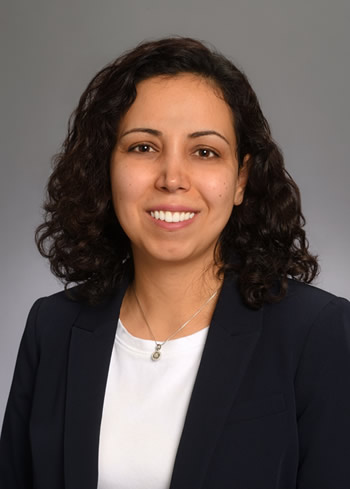Dr. Homa GhaleiBy Petra Celadova  Dr. Homa Ghalei is an Assistant Professor in the Department of Biochemistry at the Emory University School of Medicine. Following an amazing scientific journey through a few prominent laboratories across the world, she began her own group four years ago studying the role of small nucleolar RNAs (snoRNAs) and their complexes in ribosome biogenesis and function. “The most exciting part of starting my independent research group was to begin pursuing my ideas and building the resources and community that I needed to accomplish my goals,” Dr. Ghalei said. Her current “work on snoRNPs has focused on addressing the key long-standing questions of how snoRNA-guided rRNA modification and processing events control ribosome biogenesis, and how dysregulation of these processes impacts translation in biology and disease.” Most recently, she has “become fascinated by how disease-associated mutations in various components of the cellular RNA-protein machines cause distinct translational defects that result in adverse cellular outcomes.” Science has taken Dr. Ghalei to places that she “would have never imagined traveling to or living in” when she first started studying Cell and Molecular Biology at Tehran University in Iran. Dr. Ghalei’s first adventure after earning her B.Sc. took her to Göttingen, Germany where she studied under the guidance of Prof. Markus Wahl at the Max-Planck Institute for Biophysical Chemistry. It was in Göttingen that her curiosity about snoRNAs was born. “As a graduate student, I became fascinated by how structurally similar ribonucleoprotein complexes with distinct functions come about in the cell. I became interested in snoRNAs because of their shared structural features with U4 spliceosomal RNA. Similar to snoRNAs, U4 snRNA has a K-turn that is recognized by proteins that are structurally similar to those associated with snoRNAs,” Dr. Ghalei explained. After a highly successful graduate career, Dr. Ghalei moved further west to The Scripps Research Institute in Florida, in the United States, where she worked in the laboratory of Prof. Katrin Karbstein studying the regulation of ribosome biogenesis.
The geographical diversity in Dr. Ghalei’s training environments has rewarded her with a network of friends and collaborators all over the world, but her voyage has not always been easy. “The greatest challenge I have encountered in my career has been re-establishing my life after each big move,” Dr. Ghalei shared. “Being an immigrant in academia comes with its own challenges and the pandemic has not helped this. I have been fortunate to have a supportive group of friends and colleagues that have helped me fill some of the voids that come from missing close family and friends over the years.” Dr. Ghalei has been continually amazed by “how the scientific community that we live in is homogenous and so different from the real world.” She further elaborated: “One thing I have found interesting in my journey in science is how much a close-knit the science community as a whole is and what impact the power of teamwork and togetherness in science has on our day to day life despite the ever-changing political, socio-cultural, and environmental circumstances.” On the way to scientific independence, “The best advice I have received in my career is to not self-eliminate myself from opportunities based on my feelings and personal assessment. It is sometimes hard to believe in yourself based on all that is going around you but learning to be your own best advocate is a crucial skill in academia,” Dr. Ghalei said. She also added her own advice for current trainees: “Follow what sparks your curiosity with determination and persistence and read the literature thoroughly before starting to tackle a question experimentally. Use all your available resources, adopt emerging tools, and do not be shy to ask for help.” Dr. Ghalei is also a mother of two young children. She said, “I enjoy the flexibility that comes with working in academia and my appreciation for it has grown since I became a parent. To balance it all and to not feel stressed about it, I have learned that some days I need to stretch work hours to home while other days I may be able to cut work hours to have extra time with my kids.” Dr. Ghalei strongly believes that that there is a need for the scientific world to “work harder to come up with strategies on how to be inclusive of scientist parents at the scientific meetings.” One of her favourite stories from her time in RNA Society is when she herself implemented one such strategy at the 2008 RNA Society meeting in Berlin. “A family of two world-renowned scientists arrived with a toddler at the registration desk where I and my friends were helping by handing out name badges and abstract books,” she reminisced. “We agreed to watch their kid at the registration area so the parents could attend the first talk. To entertain the kid, we decided to play a Lego game with the abstract books that were in a corner and needed to be moved. We all had fun relocating the heavy abstract books one by one and the kid was entertained and busy for the first session.” Dr. Ghalei’s favourite RNAs are snoRNAs and rRNAs. You can connect with her on Twitter (@Ghaleilab). |
